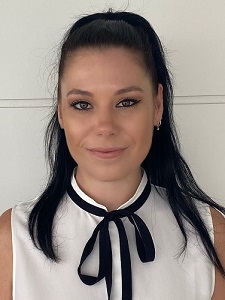Social anxiety disorder is defined as an excessive fear of negative evaluation, whereby the individual fears that he or she will act in a way (or display anxiety symptoms) that will be humiliating or embarrassing.
It is the most common anxiety disorder and one of the most prevalent mental disorders, with very early onset. It is estimated that half of all cases of social anxiety disorder present by age 11, with 80 percent emerging before 20 years of age.
Among the general population in Australia, social anxiety disorder occurs quite frequently, with lifetime prevalence at 8.4%, and 4.2% suffering symptoms in the past 12 months. It has been associated as a high risk factor for subsequent substance abuse.
Alcohol Use Disorders
Alcohol use disorders are another class of common and debilitating disorders, and include alcohol dependence and alcohol abuse.
Alcohol dependence generally refers to a physiological and/or psychological dependence on alcohol, whereby despite physiological and/or psychological consequences, the individual continues to consume alcohol.
An individual who abuses alcohol may use alcohol in risky situations and may continue to use alcohol despite problems in social or interpersonal areas. Additionally, they may experience problems in occupational or familial situations relating to their alcohol use.
Twelve-month prevalence rates for alcohol abuse are 3.8% in men and 2.1% in women; for alcohol dependence, the rates decrease to 2.2% for men and 0.7% for women.
When Social Anxiety Disorder and Alcohol Use Disorder Co-occur
Social anxiety disorders commonly occur alongside alcohol use disorders.
According to a number of epidemiological studies, alcohol use disorders are much more prevalent in individuals who have been diagnosed with social anxiety disorder in comparison to those without a social anxiety diagnosis
If you suffer form social anxiety disorder, research estimates that you have a 20% chance risk of also misusing alcohol. Studies have found that when social anxiety and alcohol misuse occurs together, social anxiety disorders typically precede alcohol use disorders.
Commonly referred to as “liquid courage”, alcohol is associated with increased confidence, lowering of inhibitions and as such is attractive to those with social anxiety. Once a person experiences relief of anxiety after using alcohol, this increases their risk of drinking in excessive amounts and can create an unhealthy pattern of substance abuse.
Because alcohol is a depressant, it has a sedative affect and is often why people use it to “relax”. While alcohol may temporarily reduce the symptoms of social anxiety, it can also exacerbate symptoms within hours of consumption including irritability, anxiety and depression.
Treatment Options
If you have been diagnosed with an alcohol use disorder and social anxiety disorder, treatments for either one alone may not be as beneficial for you.
If you’re an adolescent or a young adult, it’s likely your alcohol use hasn’t developed into an alcohol use disorder. If you are drinking at this stage, it may be a coping strategy for situations that invoke anxiety. If you are within this age group, treatments for social anxiety disorder may well prove sufficient in overcoming anxiety and preventing an alcohol use disorder from developing in the future.
Research shows that Cognitive Behavioural Therapy and Motivational Enhancement Therapy are the most promising treatments for co-occurring social anxiety disorders and alcohol use disorders.
If you think you may be suffering from social anxiety, or use alcohol to cope and would like help developing adaptive coping mechanisms to prevent the acquisition of an alcohol use disorder in the future, I’d love to discuss this with you and formulate a treatment plan in line with your goals.
 Author: Tara Pisano, BA (Psych) (Hons), M Psych.
Author: Tara Pisano, BA (Psych) (Hons), M Psych.
Tara Pisano is a Brisbane psychologist with a special interest in early intervention in adolescents and young adults, as this is when three quarters of mental health conditions emerge. In her practice, she draws on a range of evidence-based therapies such as CBT, DBT, IPT, ACT and Motivational Interviewing, to promote recovery and positive outcomes.
To make an appointment with Tara Pisano, try Online Booking. Alternatively, you can call M1 Psychology Loganholme on (07) 3067 9129 or Vision Psychology Wishart on (07) 3088 5422.
References:
- American Psychiatric Association. (2013). Diagnostic and statistical manual of mental disorders (5th ed.). https://doi.org/10.1176/appi.books.9780890425596
- Buckner, J. D., Schmidt, N. B., Lang, A. R., Small, J., Schlauch, R. C., Lewinsohn, P. M. (2008). Specificity of social anxiety disorder as a risk factor for alcohol and cannabis dependence. Journal of Psychiatric Research. 42, 230–39.
- Buckner, J. D., Timpano, K. R., Zvolensky, M. J., Sachs-Ericsson, N., & Schmidt, N. B. (2008). Implications of comorbid alcohol dependence among individuals with social anxiety disorder. Depression and Anxiety, 25, 1028–37. http://dx.doi.org/ 10.1016/0092-6566(92)90050-E
- Crome, E., Grove, R., Baillie, A. J., Sunderland, M., Teesson, M., Slade, T. (2014). DSM-IV and DSM-5 social anxiety disorder in the Australian community. Aust. N. Z. J. Psychiatry. DOI: http://dx.doi.org/10.1177/0004867414546699
- Gilles, D. M., Turk, C. L., & Fresco, D. M. (2006) Social anxiety, alcohol expectancies, and self-efficacy as predictors of heavy drinking and voluntary college students. Addictive Behaviours, 31(3):388–398.
- Morris, E. P., Stewart, S. H., & Ham, L. S. (2005). The relationship between social anxiety disorder and alcohol use disorders: A critical review. Clinical Psychology Review, 25, 734–760.
- Stein, M. B. & Stein, D. J. (2008). Social Anxiety Disorder. Lancet, 371, 1115-1125.